#podcast titles
Explore tagged Tumblr posts
Text







The Holmwood Foundation - S1 Episode Titles
Episode 1: Across the Moors Episode 2: Train Fiend Episode 3: Convalescence Episode 4: Freezer Food Episode 5: Wildlife Episode 6: Database Episode 7: To The Lighthouse
As announced by Sean Carlsen on our livestream tonight, please find our episode titles for Season One above! As always, you can find our Kickstarter HERE for more information.
#the holmwood foundation#the holmwood foundation podcast#podcast titles#titles#podcast announcement#Dracula#episode titles#Jonathan Harker#Maddie Townsend#Mina Harker#black and white#photography
156 notes
·
View notes
Text











why can’t queers just flirt like normal people
#alternative title Parker learns how devastating a bark can be#GET THESE GUYS A ROOM#parkerrrr parker the man that you are#artists on tumblr#traditional art#malevolent#malevolent fanart#malevolent podcast#arthur lester#arthur malevolent#peter parker yang#parker yang#parker malevolent#parkthur
2K notes
·
View notes
Text
John: I AM NOT THE KING I AM HUMAN I HAVE HUMANITY I AM MORE THAN JUST A FRACTURED PIECE OF THE KING IN YE-
John in any situation where someone has the upper hand in the slightest: I am about to flex my KIY privileges so hard
#you still covet the title buddy idk what to say#malevolent#malevolent podcast#john malevolent#john doe malevolent#malevolent john#malevolent 43#malevolent 43 spoilers
811 notes
·
View notes
Text
“breathe to me while i hold you close the secret of the murmuring i envy.” (close up under cut)


#i will never be getting over them actually#PLUS this parallels well with the painting reference (ivan the terrible holding his son ivan) and arthur’s grief as a father himself#always thinking about the grief of fatherhood..#malevolent#malevolent podcast#blind faith#arthur lester#oscar malevolent#art#artist on tumblr#artist#digital painting#painting#malevolent spoilers#tw gore#also the title of this painting is from walt whitman’s ‘as i ebb’d with the ocean life’
420 notes
·
View notes
Text

"You look like a frog who's not to be fucked with."
I blame @spinning-logic for this
#flamiart#flamdoodles#art#digital art#doodle#malevolent#malevolent podcast#malevolent fanart#arthur lester#john doe#john doe malevolent#kermit#fozzy bear#muppets#parody#alternative title: “Jesus Christ Arthur - wocka wocka”
711 notes
·
View notes
Text
As a music, religion, and literature nerd, the Dies Irae has been one of my favorite go-to pieces of trivia for a long time, which means that this line:
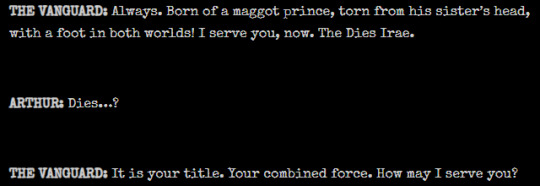
Has been driving me batshit BONKERS since part 42! And also as a semi-professional media analysis yapper, I figured I might as well dive into the exact reasons I jumped up and audibly gasped upon first hearing this line and have subsequently lost my mind since then. So!
Here is why I think that the Dies Irae is the perfect analogy for John and Arthur:
Religion
Let's start with the most straightforward meaning: "Dies Irae" is a Latin term, and it translates to the "Day of Wrath." Or otherwise known as the Judgement Day, the foretold second coming in Catholic canon, when Christ will "come again in glory to judge the living and the dead." It's at this Last Judgement where God will wield perfect justice to send the worthy to everlasting peace and the unworthy to everlasting punishment. (everyone say "thank you" to excessive childhood Catholic lessons for burning this into my brain)
There's a kind of irony to the fact that Arthur so vehemently rejects Christianity and religion as a whole, and that John spends much of his arc trying to distance himself from the role/identity of a god, yet both are given this incredibly religious title, effectively restricting them from ever forgetting the presence/influence of religion in their lives.
This title has a couple layers though, because we have to consider why it's the Day of Wrath specifically that represents Arthur and John. Now, I don't think I have to tell you that those two are bursting with anger 80% of the time. But I am going to tell you that those two are not just angry, but moreso "divine fury" incarnate.
The Day of Wrath, the Final Judgment, is the final and eternal judgment of God on all: "For now before the Judge severe / all hidden things must plain appear; / no crime can pass unpunished here." (Dies Irae, Dies Illa). The final Judge, the all-powerful God, can see the objective morality of every single person, and is thus the sole, rightful determiner of fate.
This assumption of their right to perfectly and single-handedly decide others' worthiness shows up over and over, not just John and Arthur's actions, but also in how they describe these judgments.
When Arthur kills the widow on the island, it's not because she was dangerous, but because she was a cultist who "deserved" to be punished.

When John and Arthur need to get rid of Mr. Scratch's stone, John says they should give it to "criminals" who are "deserving of this curse." Even though, just moments before, Arthur refused to give the stone to Oscar because to do so would be to cursing him to a fate of eternal suffering.

And I can't go into every single detail about the entire Larson plotline because this post would double in size, but it obviously needs to be included here. Possibly the strongest tie between this arc and the idea of the Dies Irae is Arthur's conviction through it all. Arthur vows that he is going to kill Larson in divine retribution not because he wants to, but because he has to. He even goes so far as to admit that killing Larson will be a mistake, a cruel and overly-bloodthirsty action that goes against his compassion. But killing Larson isn't a choice to Arthur, it is the unavoidable punishment for Larson's sins and Arthur is simply the enactor of justice. Just like the Final Judgment, there is no sympathy, no hesitancy— the judgment is absolute, divinely ordained, and cannot be stopped no matter how undeniably horrific it is.

If we look at the Catholic Catechism, principle 2302 states that it is sinful to kill out of desire, but that it is "praiseworthy to impose restitution" and use violence to "maintain justic." So even if Arthur has intent to kill, his actions count as divinely sanctioned. He is acting as the hand of God's punishment.

Over the course of Season 3 and 4, Arthur's fiery rage dies down to a more gentle simmer, but his conviction only seems to grow, and John follows suit. Despite previously reprimanding Arthur for his unquestioning wrath, John eventually becomes just as convinced that Larson "deserves" to face a wrathful reckoning. The "fact" that Larson is wholly unforgivable and is fated to receive eternal punishment becomes more indisputable in their minds, and they both stop questioning the morality of their intentions, entirely convinced of their judgment.
Throughout the story, Arthur and John insist upon the importance of kindness, compassion, and forgiveness, and say that these are the values that guide their every action. Yet, time and time again, they approach certain people with nothing but wrath and resentment. It's a sharp contrast to the benevolent figures they make themselves out to be, and Arthur and John are often blind to the contradiction because, in their eyes, they are still following those values in every action. And in the moments when they do recognize their horrific words or actions, they still cannot let their judgment go, convinced that it is their "duty" either way.
In Part 35, Arthur says "Just because you can't make the hard decision, doesn't mean it's wrong." This is exactly how John and Arthur view themselves. They know that some of their actions are harsh and violent and painful, but they are don't view that violence as wrong, because they are enacting that violence in justice. They move through life with carefully-selected destruction, culling the world of those they view as unforgivable sinners, and punishing them with divine righteousness. Arthur and John carry righteous fury in their every step, bringing the Day of Wrath down upon the world around them.
Now, there's already a ton of meaning just in this religious allusion alone. However, there's another application of the Dies Irae in modern culture, which brings us to the second side of this title:
Music
Back in the 13th century (sounds like a familiar setting...), friar Thomas of Celano wrote a poem for and about the Dies Irae. The poem was recited at Requiem Mass (church services to honor the dead), and it ended up being set to a Gregorian chant tune.
Over time, this melody has been used by a variety of composers, but the one we're focused on is Hector Berlioz. In 1837, Berlioz used the Dies Irae melody as part of his narrative symphony, Grand Messe de morts, in order to communicate that the main character had died. Then a lot of other composers saw that and said "Hey that's a cool idea!", and started also using this melody to represent death in their music. Nowadays, it's a fairly staple part of modern film and musical storytelling. If you've listened to literally any major soundtrack, then there's a good chance you've heard this motif (or a variation of it) used before. It's often subtle, sometimes loud and obvious, but no matter what, it reveals the inevitable presence of death. (essentially, the Dies Irae=death)
Now, obviously there's something tragically ironic about Arthur being likened to a musical motif when he tries so hard to distance himself from it, and there's something tragically ironic about John being associated with such a dark piece of music when he shows so much fascination and joy toward the art. Again, though, we've got some layers here. Yorick doesn't just compare Arthur and John to the Dies Irae, he literally defines them as the Dies Irae, a full embodiment of it.
Even before the story started, Arthur lost both of his parents, his friend and wife, his daughter, and his best friend.

John, when he was part of the King in Yellow, knew only how to harm and attack. In the Dark World, he falls back on this fearful lashing out with violence, harming even more people.

And throughout the story, John and Arthur seem to bring devastation to everyone else around them: Lilly the buopoth, Oscar, Noel, Collins, Daniel, Larson and Yellow.
The arrival of Dies Irae musical motif in a film always indicates that death is approaching or that is has already struck— a host carrying its blight to spread onto others. Just like the musical motif, the arrival of Arthur and John foretells the near-arrival of death. They play a duet together— John and Arthur, and death— always singing and dancing around and with each other.
These two never succumb to death, always finding a way to slip through its fingers and survive every situation. But they cannot escape death's presence because they are death's partner— singing the melody to death's subtle harmony. They cannot escape death because they are its host— destined to carry and spread devastation to death's victims. From the moment you meet John and Arthur, you know that death is inevitably approaching just a step behind, waiting to strike you down.
Whether it's the religious or musical side, we can see that John and Arthur are the literal embodiment of these allusions. They carry these powers and ideas in their every action and word, in their every step, in their very breath and blood.
Arthur and John. The hands of God's justice. The enactors of divine fury.
Arthur and John. The hosts of blight and destruction. The partner of death's song.
The man himself. The voice inside his head.
The Day of Wrath. The Dies Irae.
#this is late. like. really late#and canon is clearly lining up for an actual plot point related to this title#but ignore that!#and just think about the themes guys. the allusions. the symbolismmmm#(humor me here)#also i am. so sorry. for basically posting an entire informal essay#that appeals specifically to just me. and maybe two other people in the whole world#but the worms in my brain demanded that i yap about this#malevolent#malevolent podcast#malevolent analysis#malevolent meta#dies irae#arthur lester#john doe#cherrys rambles
202 notes
·
View notes
Text

IDENTITY DOGMATISM, THE IMAGE IS ALWAYS IN STYLE
#lyrics from: anti you by blue stahli#PLEASE LISTEN TO THE SONG. ITS REALLY GOOD.#ghosts art#SAYER#SAYER podcast#SAYER ai#OCEAN ai#honestlyyyyy for a pretty low effort piece this turned out BANGING#LISTEN TO BLUE STAHLI . IF YOU LIKE ELECTRONIC ROCK AND THE GUY HIMSELF IS REALLY SILLY#btw the folders for SAYER and OCEAN are titled ''my child SAYER'' and ''its twin OCEAN'' respectively#also OCEAN's halo is DIY :) made out of scrap wires and twisted to form a DNA helix !!#because hashtag evolutionnnnnn
136 notes
·
View notes
Text
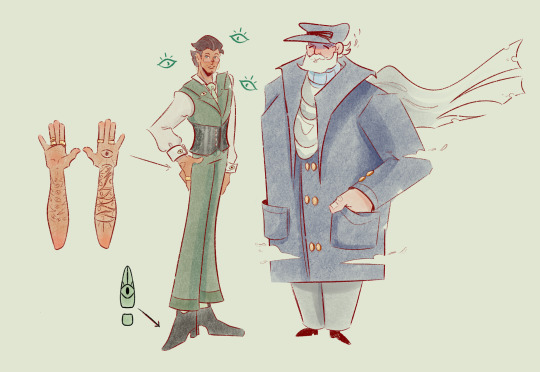
Elias and Peter Designs! :D
Now they are together and Complete™️ :] I’m sad I had to cut the turtleneck cause it was 🫶Cute🫶, but it unfortunately wasn’t very threatening ._. So now he is cursed w a funky lil corset. (The cozy cable knit turtleneck will make a reappearance eventually… I will make it so…) but he’s more Cvntified for now and that’s Good Enough💃
#fanart#art#artists on tumblr#illustration#digital art#lexo’s scribbles#doodle#tma podcast#tma elias bouchard#elias bouchard#tma jonah magnus#tma elias#tma#tma peter lukas#peter lukas#the lonely#the beholding#the ceaseless watcher#the eye#why does the eye get so many titles#ur so extra#the magnus protocol#tma fanart#the magnus archive fanart#the magnus archives#the magnus institute#the magnus pod#jonah magnus#tma the lonely#lonelyeyes
294 notes
·
View notes
Text
tma au where Jon works from home and basically gets a job similar to home safety hotline where he had to categorize the "calls" he's getting (basically statements), and giving said callers information on the entity hunting them.
But like. At first he only has 3 entities that he has information about and so that wildly screws his perspective (atleast until he gets clearance to learn more). So he totally thinks that Mr. spider was from the corruption or smth until around the end when he gets a infopacket on the web and has a panic attack on how many people he miscatagorized and told them something other than what the needed to hear and how he has walked into the webs trap and can't escape. And all the while due to his lack of information he's been accidentally sending people the wrong instructions which get them killed.
#There's a fifteenth fear.... black mold......#But yeah at first he knows 3 entities#The corruption; the dark; and the Slaughter#So he's just all kinds of confused.#tma au#tma podcast#the magnus archives#tma#jon tma#tma jonathan sims#tma jon#Idk i was watching a play through of home safety hotline and the end i thought about how it would fit Elias giving Jon the title of Archive#That name may change due to the different situation#But yeah I'm leaning heavily into the guilt part#Like. He thought he was helping#He thought he was doing good.#But nope. He told a victim of the hunt about the Slaughter and now they believe that if they run the Slaughter will give up and just kill#Someone else
90 notes
·
View notes
Text
Lord Evrard: We're all together now.
Friar Dorian Horbrooke. "Dr. Horribilis" polymath, philosopher, scientist, theologian. A genius that some call a wizard with unmatched expertise on ancient texts.
Gerard de Vendhuile. Architect and artist of the future. Your mind knows no bounds and travels places some can only dream of
Langward Ardene. Physician and surgeon who has written about the unwrite-able. Leagues above your counterparts because you know there's more to everything than meets the eye.
Barnabas of Ballechey. Astronomer and alchemist you're one of the few people who has seen visions of places beyond. Cracks that have led to our coming here.
And there's Prince Warin. Manipulative smartass. You hear me? He's clever and got his people under his thumb. Hello? Y'all paying attention to me? He's willing to do anything to get what he wants and he never stops wanting. Keep your guard around him. Did I mention he was manipulative?
#Was this an excuse to map everyone out because I was extremely lost with all the characters?#Maybe#But I really did find it funny how everyone got their titles and jobs and such#And how they're all leading experts in their field#Then there's Prince Warin who all that he has is that he's clever and knows how to work things into his favor?#What good does that do for this whole blackstone business??#Is Evrard gonna need a way to get this new religion out to the masses when he's done?#Did he want Warin to debate a god??#Why is a prince here#Either way Evrard was a funny bitch for putting him on the spot like that#The reason Arthur wasn't last was because if that was the last introduction everyone heard no one would've spoken to him#malevolent#malevolent podcast#arthur lester#episode 48 spoilers
73 notes
·
View notes
Text

I Prefer Thieves
#the penumbra podcast#tpp#juno steel#peter nureyev#jupeter#fanart#myart#based on that one illustration you know the one (linked on title)#this one goes on a separate post cause i liked how it came out C:#for shame i have realized i have not made fanart of a BUNCh of stuff that i was really really into when i was younger. Amending that#I still love these characters to DEATH
97 notes
·
View notes
Text
Arthur wanting to hunt down any remaining villagers to deliver justice… very Dies Irae of you Arthur…
#that title is starting to shine through#wonder when we’ll see it in John#malevolent#malevolent podcast#arthur lester#john doe malevolent#gogoat grumbles#malevolent spoilers#malevolent part 46
54 notes
·
View notes
Text

some designs for these two, and additional gay doodles under the cut
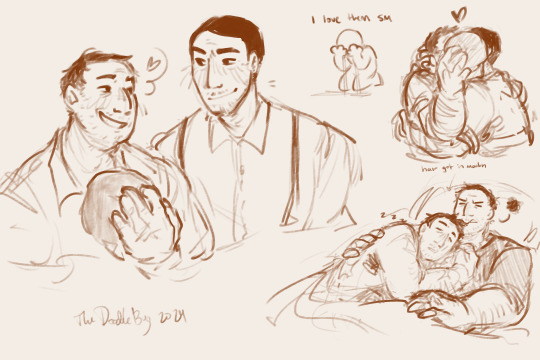
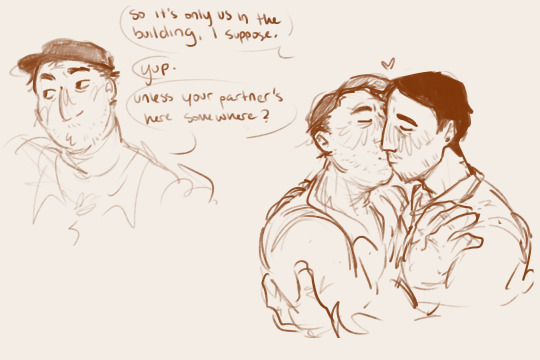
imma be honest i'm a tad bit nervous to post this bUT i do really like how some of these turned out and i really like this pairing sO.
also got to test out a new brush w these and it is so nice for sketching
#i cannot draw kisses for the life of me#but these two deserve it. so#cannot draw parker consistently either apparently#his freaking hair#thank you to dear for introducing me to this ship#malevolent#malevolent podcast#malevolent fanart#eddie malevolent#malevolent eddie#that sounds like a title for smt#'malevolent eddie' what in the cheesy villain comic#peter “parker” yang#parker malevolent#peter yang#parker yang#eddie x parker#arthur lester
98 notes
·
View notes
Text

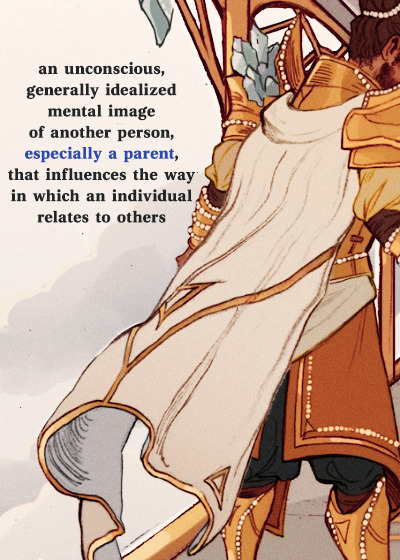
imago from Latin imago: an imitation, copy, image, representation, likeness.
#I'm totally normal about them. Unrelated—do you ever think about the title of Midst Season 2 Episode 14!#Phineas Thatch#Jonas Spahr#Midst#Midst podcast#Gena makes stuff#Gena's edits#For clarity: stills are from the video versions of Midst 2.14 and 2.02 with art by Jessica Fong and Annalise Jensen. It's official art.#Midst Cosmos
220 notes
·
View notes
Text
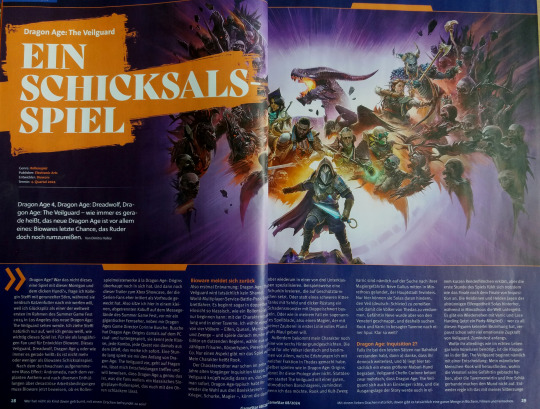
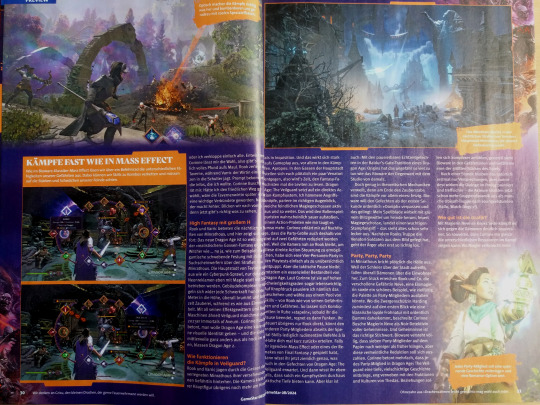
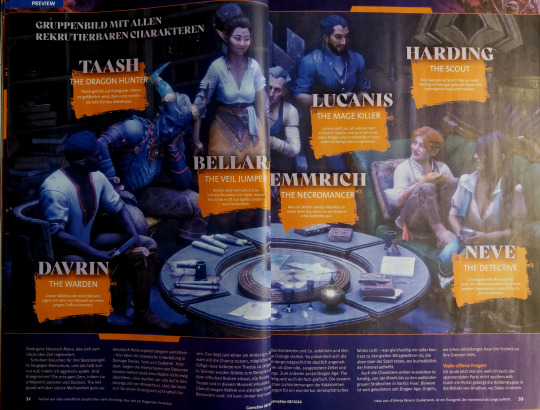
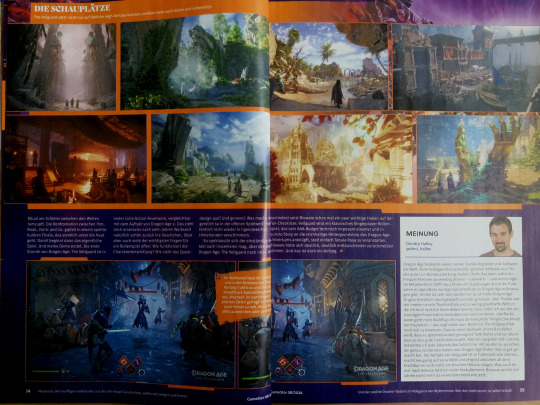
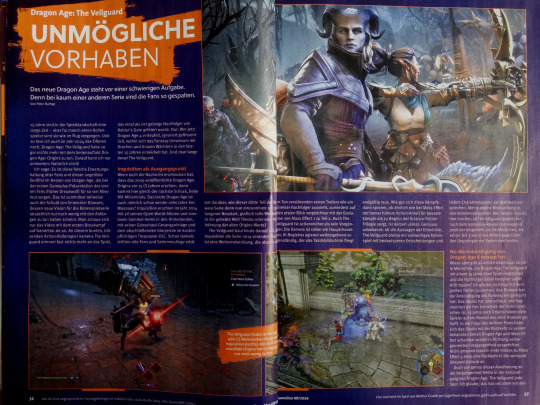
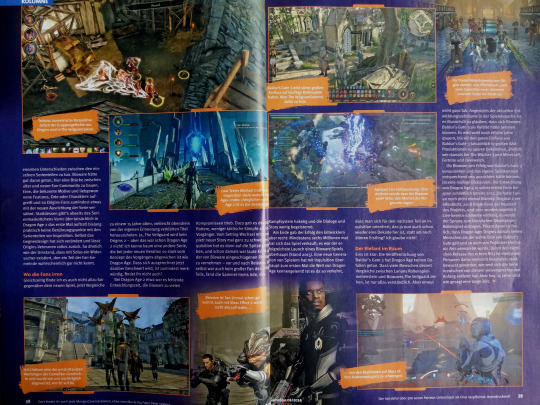
I got the latest issue of the "GameStar" magazine (the article itself was already published online two months ago apparently, but the hard copy came out three weeks ago), which had a few pages about Veilguard (and a review of the whole series), and while it didn't include any new information, I thought the final "personal opinion" piece by the author was really sweet, so I wanted to share it on here, too. (The author is this magazine's editor-in-chief, who was one of the journalists who got to see the full one-hour presentation of Veilguard at Summer Game Fest. I tried to translate it as best as I could. :3)
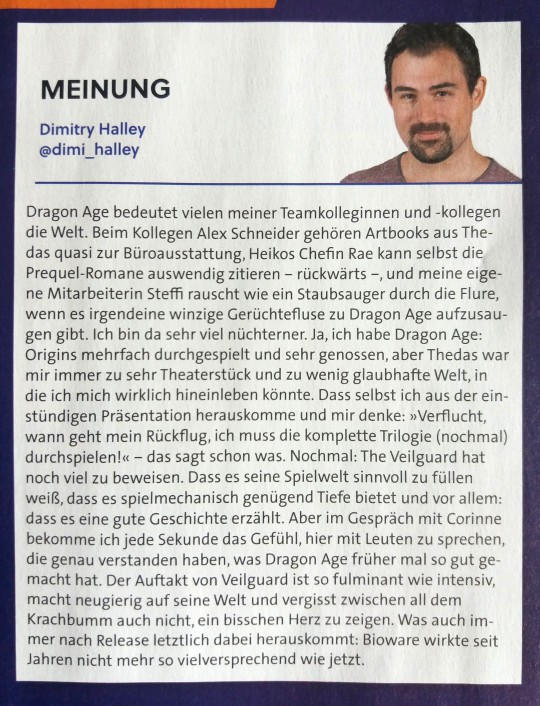
"Dragon Age means the world to a lot of my colleagues. To my co-worker Alex Schneider, the artbooks are pretty much part of his office equipment, Heiko's boss Rae can basically quote the prequel novels from memory — backwards —, and my co-worker Steffi rushes through the hallways like a vacuum cleaner every time there is the tiniest new piece of rumor about Dragon Age to "absorb". I am more lukewarm about it. Yes, I've played Dragon Age Origins multiple times and enjoyed it very much, but Thedas was always too theatrical and not believable enough of a world for me to really get immersed in it. So the fact that even I walked out after the one-hour presentation thinking: "Damn, when is my flight back home, I need to (re)play the whole trilogy again!" - that's saying something. Again: The Veilguard still has a lot to prove. That it knows how to fill its world in a meaningful way, that its mechanics offer enough depth and most of all: That it tells a good story. But during my conversation with Corinne, every second felt like I was talking with people that understand exactly what made Dragon Age so good. The kick-off to Veilguard is as brilliant as it is intense, sparks curiosity for its world and amidst all the action, it doesn't forget to show a bit of heart. Whatever comes out of it after its release: For years Bioware hasn't looked as promising as it does now."
I also got the "PC Games" magazine, but that one had even less information than GameStar, even though they put it on the cover? :/ (Had to buy it anyway of course, because it has Dragon Age on it 🤡❤️)
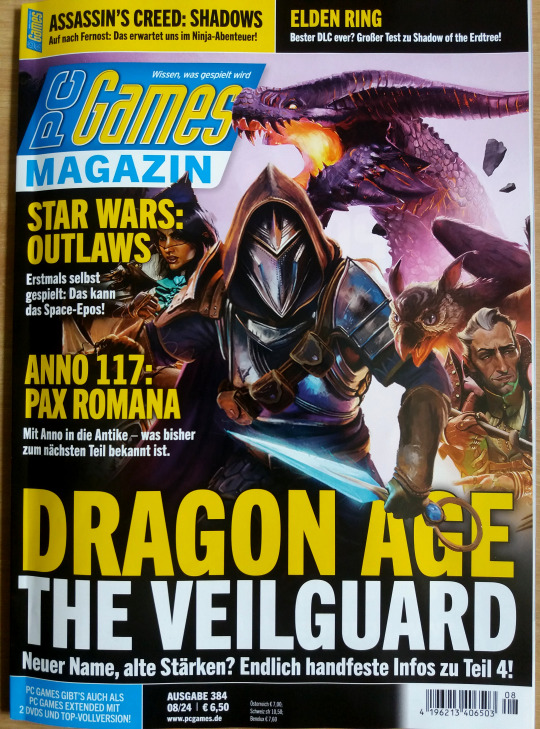
#dragon age the veilguard#dragon age the veilguard spoilers#datv#datv spoilers#da4#gamestar#the same journalist was also on a German gaming podcast where he basically re-emphasized how positively surprised he was by what he saw :D#they're being very dramatic in the title though 😂 calling it a ''Game of Fate''#''BioWare's last chance to change course (and save their reputation)''#fun fact.. there might be an ancient GameStar article floating around somewhere about yours truly lol#my one minute of fame lmao
53 notes
·
View notes

